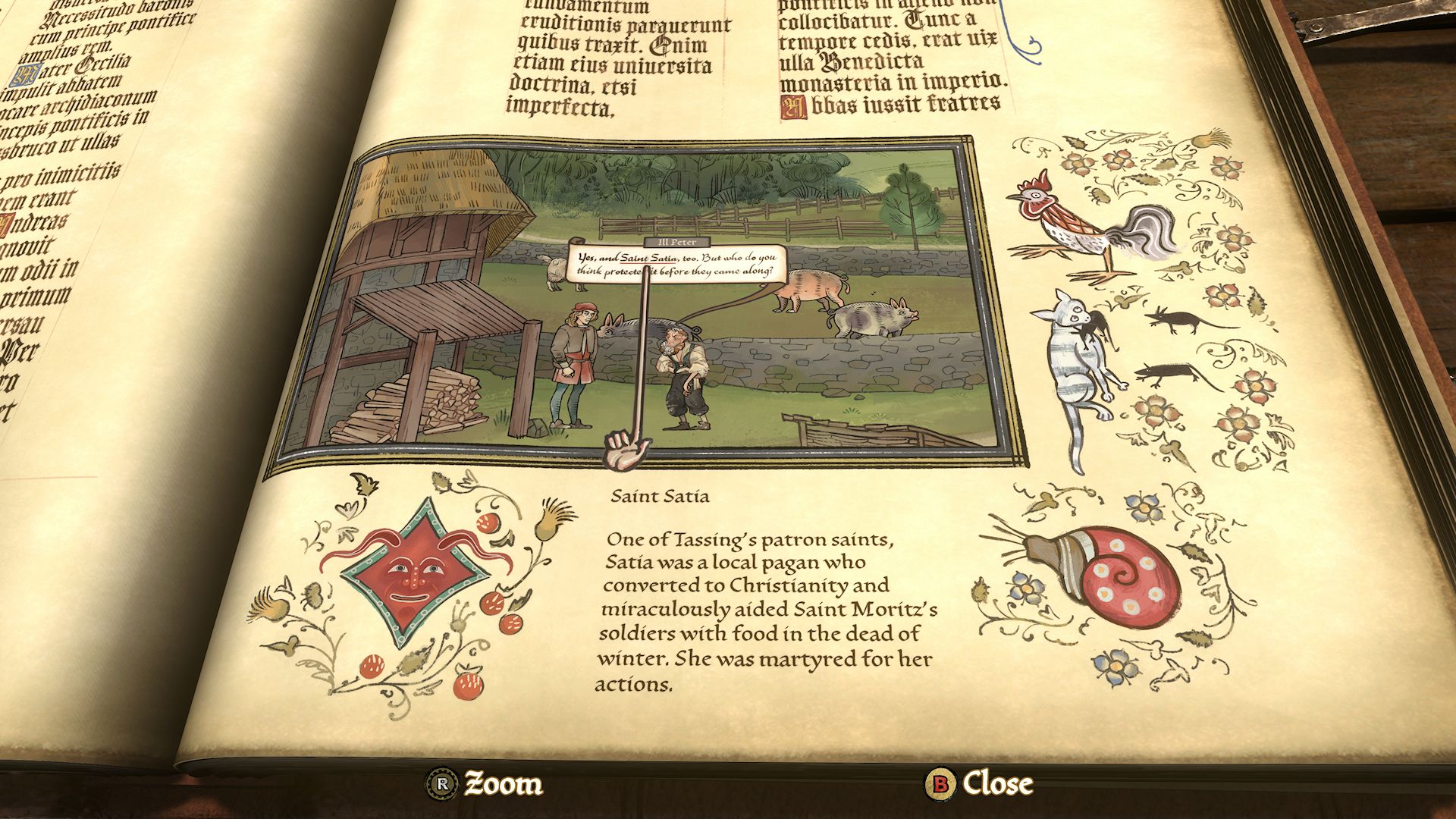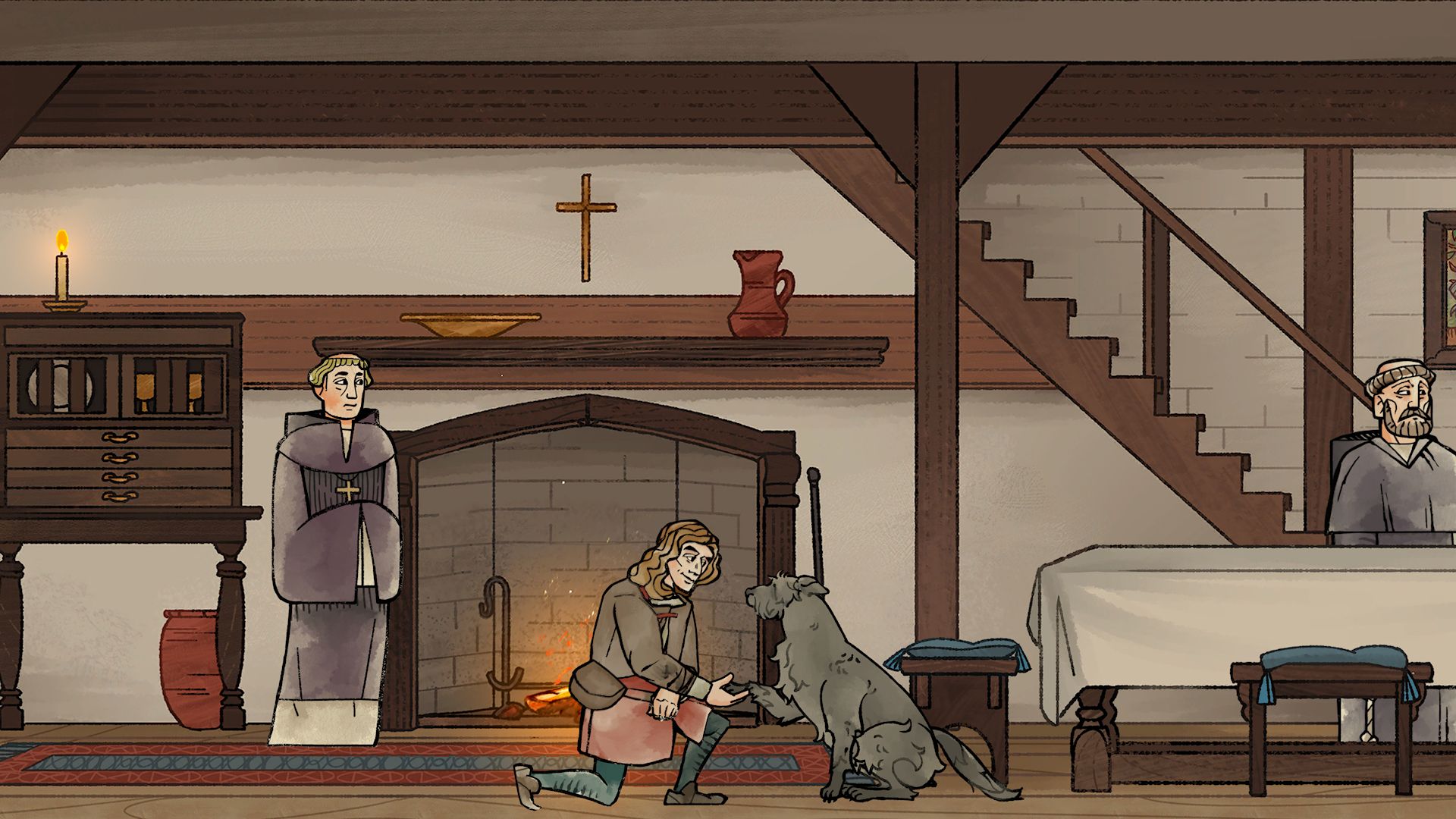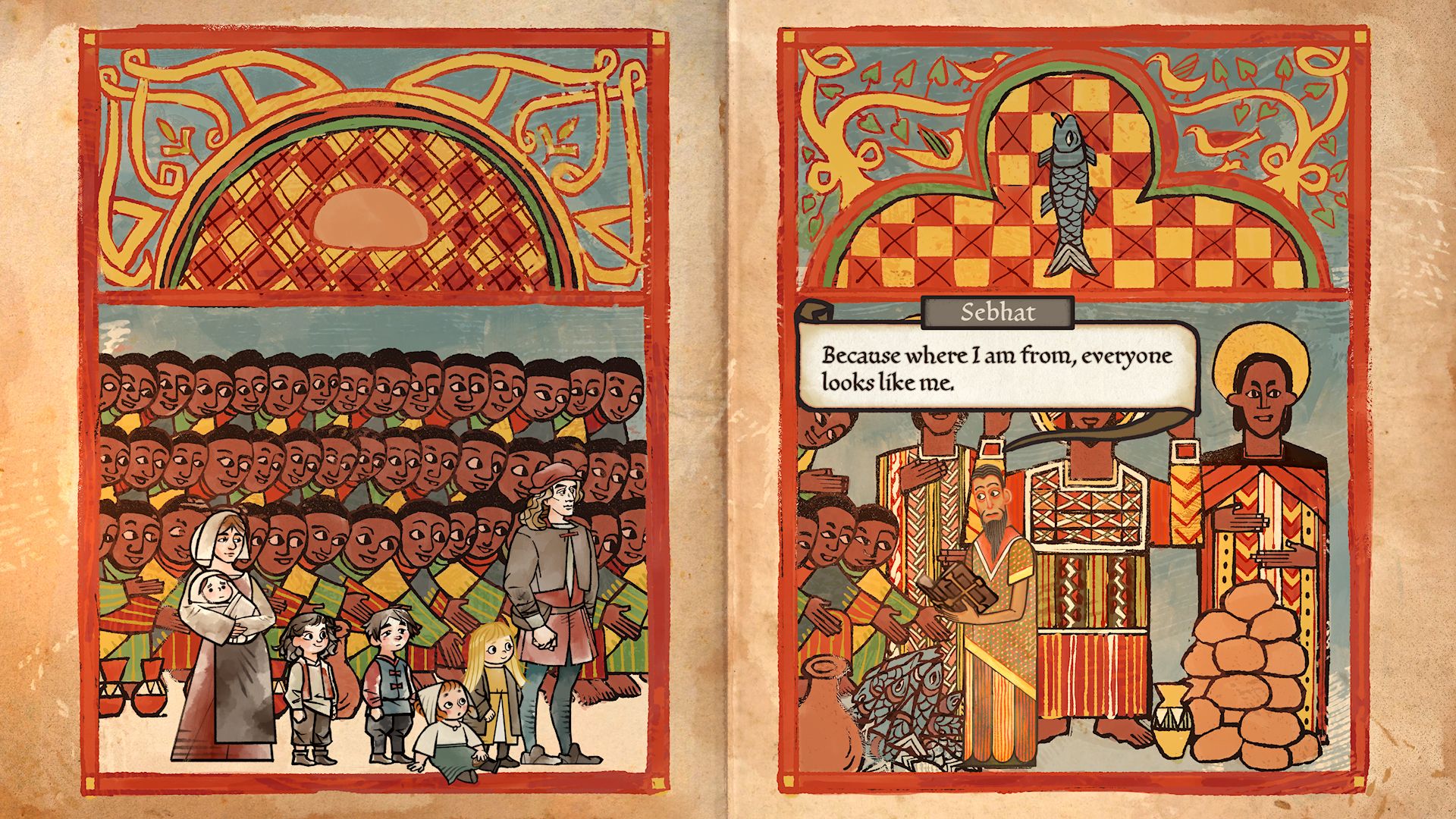Pentiment, from developer Obsidian, is described as a historical, narrative-driven game that focuses on player choice, its period piece-style art, and character development. All of this is true, but none of it adequately describes what’s been created. By no means is Pentiment a flawless game, but it is a game unlike any other, immediately establishing itself as a milestone for narrative-based games and a high bar to surpass for the incoming wave of competitors that this release will – or at least, should – spawn.
Pentiment follows the journey of Andreas Maler, an artist who begins his journey looking to finish his masterwork and earn the status and class mobility that comes with that recognition. Set in 16th century Bavaria, the story of Pentiment unfolds across different time periods in Maler’s life that intersect with his repeated visits to the area. Set against historical movements like the questioning of theology and breakthroughs in art and medicine, Pentiment has no lack of big moments to prop its story up against – which makes the decision to hone in on a microcosmic moment in a small village that much more fascinating.
To be clear, Pentiment is every bit the “lightly fictionialized” historical title it should be. Players who haven’t recently completed a post-secondary education in history will likely want to reference the game’s encyclopedia often – accessible with the click of a button mid-sentence whenever a particularly important figure or moment is highlighted. It’s not necessary, as context is provided for everything that’s especially relevant, but the world of Pentiment is such a joy it’s well worth taking the extra effort to lay out some of its intricacies. This also doesn’t take anything away from the game, thanks to the larger framework of Pentiment‘s design. Everything unfolds like art in a 16th century manuscript, whether it be dialogue, character movement, or even the references to the encyclopedia, the latter of which zooms out the action to highlight relevant info as though it were part of a larger book.

So much of Pentiment‘s presentation feels innovative, but it’s the way dialogue is delivered through both the perspective of a manuscript and Andreas’ own disposition towards characters that really stands out. Different social classes, educations, or dispositions among the characters Andreas meets will be reflected by the font in their speech bubbles. Sometimes, when Andreas learns something particularly revelatory about a character, their font will completely change to reflect that – fancier, perhaps, if they’re a thinker, or more brutish if they’ve made a threat.
The dynamism of the font in Pentiment illustrates just how much of video game design remains unexplored. Emotional responses are conveyed not through true-to-life 3D models but in the ink splatter of a particularly volatile statement. Errors in spelling or differences in linguistics are frequent in Pentiment, and even here they’re edited in real time, with script swapping letters or making adjustments on the fly. The notion that Andreas’ story, just like the manuscript its framed within, is constantly changing and evolving is reflected beautifully in the small touches of Pentiment‘s presentation.
Gameplay in Pentiment is largely dialogue-based, but there are plenty of puzzles and minor character interactions with dramatic impacts on the game that keep it interesting and fresh. Andreas’ choices make an impact on small and large scale story beats, as does the selection of his various educational backgrounds and previous travels. In practice, these changes are reflected everywhere in Pentiment, with a second playthrough highlighting a half-dozen different interactions in the game’s first hour based on different selections regarding Andreas’ history.

This is to say nothing of the major storyline choices, which dramatically alter the course of Andreas’ journey. Information the player collects as Andreas is stored in a journal and travel between areas is necessary to piece together theories, but these aren’t always useful or productive – it’s up to Andreas to choose how to best spend his time.
Character development in Pentiment is player-driven, which makes the impact of its story that much more captivating. Watching events unfold that feel tailor-made to the choices Andreas has committed to is satisfying, as is the nuanced writing that constantly questions Andreas’ – and thus, the player’s – perception of events unfolding on the page. How much of history is written by those taking part in an event, and how much is written by those with access to ink and education? Pentiment grapples with this and larger questions of morality, religion, and art constantly, one-upping itself a few different times in the way it elicits reactions out of its cast.
Accessibility in Pentiment is also worth noting. While the scripts are beautiful, they can be difficult to read for some, and the game always has an option available to make the fonts more discernable. As a largely narrative-based game, Pentiment is also accessible to those who may not have great reflexes or need to take frequent breaks in gameplay. From top to bottom, this is a game that’s only ask of its players is their time, and it’s well-spent if given.

That said, Pentiment definitely won’t be for everyone. It’s a lot of reading, theorizing, and deep-diving into 16th century political, theological, and philosophical concerns. There are very few moments that could be described as pressing or action-packed, and even those really only require holding the directional stick one way or another.
What Obsidian has here is a reinvention of narrative gaming, however, and one that asks a question of the player everyone should at least attempt answering. Whether or not the question is too inscrutable doesn’t really matter – it’s how Andreas, and the player, responds. Pentiment is the kind of masterwork that Andreas chases early in the game, and it’s equally as flawed, biased, subjective, and captivating as the pieces he’s inspired by. Play it and decide for yourself whether it’s worthy of that kind of comparison. That’s the point.
Pentiment releases on November 15, 2022 for PC, Xbox Series X/S, and Xbox One. Screen Rant was provided with a digital download code for the purpose of this review.





